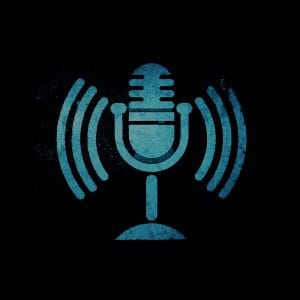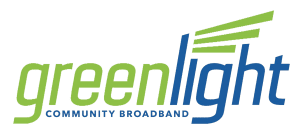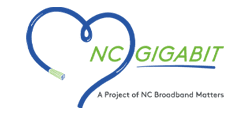The NC Broadband Matters podcast is hosted, with our appreciation, by Christopher Mitchell, host of the Community Broadband Bits weekly audio show from the Community Broadband Networks Initiative of the Institute for Local Self-Reliance. Check out Community Broadband Bits here.

In this podcast, Chris Mitchell of the Institute for Local Self Reliance interviews NC Broadband Matters Board members Doug Dawson (CCG) and Catharine Rice (CLIC & Broadband-Matters) who provide insights on how to be effective in accessing the billions of dollars being unleashed for broadband deployment and digital equity. Their advice includes: Recognize there is a lot of misinformation out there so do your homework –now is the time to understand the broadband characteristics of your community; utilize your state officials (contact them, they work for you), and if your state is choosing to pinch off how funds can be used, go after the federal funds directly with a willing partner. Finally, seek out funding avenues that provide the most local control and the least amount of competition for those funds. Focus on those local ARPA funds now where the widest birth of use is allowed (deadline for fund obligation: December 31, 2024.) There are many creative angles for localities to use if you take the time to know your own community needs and don’t hesitate to ask questions.
(Addendum: In late December, Angie Bailey was made NC’s Director of the Broadband Infrastructure Office)

Join Chris Mitchell for another NC Broadband Matters podcast, this time featuring Christa Vinson, Program Officer for the Rural Broadband and Infrastructure program at the Local Initiatives Support Corporation (LISC), and Amy Huffman, Policy Director at the National Digital Inclusion Alliance (NDIA). Christa is NC Broadband Matters immediate past President, and Amy played a critical role while at the NC Broadband Infrastructure office leading the state’s Homework Gap analysis and the NC Band Digital Equity Plan effort with the Institute for Emerging Issues. Christa and Amy discuss how Digital Inclusion and Digital Equity are finally being recognized at the national level, through both funding and policy mandates, while being seen as key components of workforce training and economic development. Underneath the growing explosion of these digital training programs – collaboration.

“After 15 years of hoping for this day, this is not a bad problem to have.” “Take Your Time.” This podcast with Chris Mitchell of the Institute for Local Self Reliance, and NC Broadband Matters Board members Doug Dawson (CCG Consulting), Gene Scott (General Manager, OSP, Wilson Greenlight Community Broadband) and Catharine Rice (Project Director, CLIC) seeks to guide the local community listener in how to cope with the explosion of demand for access to modern broadband networks now, the tsunami of broadband funding options at both the federal and state levels, and the abundance of email and voice messages from unknown “solution-providers.”
Sponsored by:


This podcast between Erin Wynia, Chief Legislative Counsel at the NC League of Municipalities and Chris Mitchell at ILSR, showcases a frustrating parallel playing out in the state of North Carolina. We hear about large swaths of the state with little or no broadband after more than a decade of being served just by the private sector. How mayors have banded together in eastern North Carolina to complain to the state Attorney General about the sub-par broadband (and possibly fraudulent behavior) of the large cable incumbent serving their region. We hear about a large majority of Republicans in the House of Representatives favoring legislation to simply allow municipalities to lease their fiber to the private sector to create internet choice. And yet we learn how the leadership in the Senate and the House continue to block legislation aimed at solving the state’s broadband crisis because of the undue influence of those same large telecom and cable incumbents. Erin and Chris discuss solutions, including how local businesses, hospitals, faith-based and educational leaders in our communities must make loud their public voices and repeat that North Carolina’s Republicans need to help solve the state’s broadband problem in this COVID environment the way the Arkansas Republicans just did.

“This is not your fault. It is not your fault that you made a decision to live a rural county that your family is from; and that you all live here, this is not on you. This is on a set of failures, a failure that we don’t have enough competition coming in to make sure you have fast enough internet that exists here. This is not your fault.” These are the words of Arlane Gordon-Bray, I-zone Community Engagement and Industry Partner for the Edgecombe Public Schools and the person in charge of just one out of the 19 BAND-NC Digital Inclusion awards given out this summer as part of a program developed by NC State’s Institute for Emerging Issues and its partner sponsors. Join Chris Mitchell from the Institute for Local Reliance for our Episode 11 which illuminates how IEI and its partners are implementing the goal of all 100 counties in North Carolina developing digital inclusion plans, $5,000 awards at a time. Speakers include Maggie Woods, Policy Program Manager at the Institute of Emerging Issues (IEI), from NC State, Amy Hoffman, Digital Inclusion and Policy Manager at the Broadband Internet Office within the NC Department of Information Technology, and Arlane Gordon-Bray.

“People in the rural areas are not working from home because they can’t. They can’t lock onto a school server, they can’t lock onto a business server…. They are not doing zoom meetings. I’ve been doing zoom meetings in rural areas. You get seven people on the screen who are in towns and everyone else is a call in because they can’t make that connection” These are the words of Doug Dawson, NCBM Board member and President of CCG Consulting, a municipally-focused telecom consulting firm in our tenth episode of podcasts by Chris Mitchell of the Institute for Local Self Reliance. In this episode, Doug opens our eyes on how COVID-19 just made the rural/urban divide “gigantic,” on why NC’s GREAT broadband grant program is “maybe not so great” (because it now effectively blocks small ISPs from applying), why the SpaceX Starlink satellite program might be described more as “pie in the sky” (our words) and then Doug’s insights on investing in the future. Learn why the minimum broadband speed required (or funded) to any home should be 250 Mbps symmetrical and how federal dollars should be used to pay for our future broadband needs, instead of funding outdated technology again (25/3 Mbps) by 2027.

In Part 2 of this webinar, Jack Cozort, Government Relations specialist from North State Strategies and Catharine Rice, co-founder of NC Broadband Matters, walk through some of the eyebrow raising events that took place on the ground during the making of H129 – the so-called “Level Playing Field Act” in 2011. Jack notes the line crossed that year under new House and Senate leadership, where broadband became a state-level partisan issue even though back in local communities it was seen by local officials, from differing party affiliations, as just infrastructure essential for their residents and businesses to participate in a global economy dependent on the internet. Chris uses this hour long interview to tease out the lessons learned, and touches on the hope that this pandemic has raised the awareness for elected officials that it is time for local communities to be broadband unleashed. Jack starts and ends the show noting that now is the time for you to ask your election year candidates, are you willing to give local communities the options they need to bring us the modern broadband [this pandemic has shown us] we so desperately need.

The current pandemic highlights the critical nature of access to modern broadband, and yet too many residents and students have none, and find themselves driving to find a static school bus wired for internet or a library parking lot so they can complete their homework or apply for a job. How did we get here? Chris Mitchell from the Institute of Local Self Reliance interviews Jack Cozort, Government Relations specialist with North State Strategies and Catharine Rice, co-founder of NC Broadband Matters, for some insights into the making of H129, legislation passed in 2011 that effectively prohibits local communities –still 9 years later –from provisioning internet to their residents and businesses. In Part 1, Jack and Catharine remind the listener that prior to 2006, local NC communities had local cable franchising authority which they could utilize to require cable operators to deploy these information pipelines to local homes, and how the cable and telephone industry lobbied their way to monopoly status and abandoning under-served communities in North Carolina.

In this seventh episode, Chris Mitchell of the Institute for Local Self Reliance speaks with David Kirby, President and founder of the North Carolina Telehealth Network Association, to discuss why broadband matters for rural healthcare. With the “sheltering-in” requirements of COVID-19 in full swing, perhaps this is a rhetorical question no matter where you live, but David Kirby widens the lens and explains how telehealth began more than 15 years ago, if not when the first telephone was installed. By describing the healthcare services that would terminate if a fiber optic were cut, he shows us the diverse and numerous services that are available to some, and could be available to everyone if high capacity and reliable broadband infrastructure connected to every home. He talks about various barriers that are coming down –from insurance coverage, to legal liabilities, to acceptance by the caregivers, but how the internet capacity barriers in rural areas remain stark, a troubling characteristics where hospitals were already closing, and geographical distance is a barrier to healthcare. Access to broadband “is as important as power, water and any other utility at the typical clinic site today,” he stated. Perhaps a silver lining of this COVID-19 pandemic is the stark awareness it has created of the significant societal benefits modern broadband at home could play in maintaining a healthy society in the future. As David simply put it: “Being healthy is a (societal) good in itself – it is quality of life.”

What is the Homework Gap? According to FCC Commissioner Rosenworcel “It is the cruelest part of the new digital divide.” It is where students cannot do their homework at home, because they have no broadband access. This sets up an immediate inequality for students and their future opportunities. Our sixth podcast with Chris Mitchell is again from Raleigh, NC, where he spoke with Dr. Lutricia Townsend, Director of Evaluation Programs from the Friday Institute for Educational Innovation, and Amy Huffman, Digital Inclusion & Policy Manager for the Broadband Infrastructure Office at the NC Department of Information Technology. Dr. Townsend notes how 70% of teachers assign homework that requires access to the internet, setting up an immediate disadvantage for students with no internet at home, and forcing teachers to find solutions which don’t truly close the gap. Amy Huffman dives into specifics in North Carolina, describing the result of a recent survey her office completed on how many students (20%) and why students don’t have access (cost or none provided in their community). She notes how North Carolina now only funds digital school books, and what her office and the Governor are doing to equalize the state’s digital inequality. Chris ends the show by reiterating the announcement of a new grant program for NC localities to develop their own digital inclusion plans, described here.

“We are showcasing how you can have a great career and live in one of the most beautiful places in the world.” In his second podcast while attending IEI’s Reconnect Forum in Raleigh, Chris Mitchell interviews Dr. Jeff Cox, President, and Zach Barricklow, Vice President of Strategy, from Wilkes Community College. WCC serves the counties of Wilkes, Ashe and Alleghany which are known for their Blue Ridge mountains and meandering rivers, but slowly becoming known as an area served by fiber-to-the home broadband, thanks to Wilkes and SkyLine/SkyBest membership cooperatives and Riverstreet Networks. Jeff and Zach call this broadband network “the great leveler,” a force that is shifting the economic attraction from urban to rural work environments by letting young people and information professionals earn urban-level salaries, and work for large urban-based corporations, while living in their mountain nirvana. This podcast points out how community colleges are a critical part of this equation, and for economic mobility, as they use broadband to skill up the rural workforce and provide a relief valve for the transportation stress and hyper population growth of the state’s urban areas.

“The number one threat to community economic development today is digital exclusion, so if you do not address that today, it is going to be really hard for you to not only catch up, but just to start getting some traction in this digital age.” These are the words of Roberto Gallardo captured in this special NCBM podcast by Chris Mitchell when he traveled to Raleigh on February 10 to attend the Reconnect Forum, sponsored by NC State’s Institute for Emerging Issues. Roberto Gallardo is the Assistant Director of the Purdue University Center for Regional Development and a digital inclusion expert who has studied the intersection of infrastructure development and digital inclusion. Roberto is well known for crunching the numbers which expose which demographics are most hurt by digital exclusion. In this podcast, he draws from his work in Mississippi and Indiana and describes how to use local champions to make digital inclusion programs sustainable, how to use and frame the data to gain political support, and to tailor your digital inclusion plans to local demographics, among other topics.

Join Chris Mitchell in this half hour podcast with Susan Cashion, Vice President, Chief Compliance & Administrative officer from Piedmont Electric Membership Corporation, and Greg Coltrain, Vice President of Business Development for Riverstreets Network (the private sector arm of Wilkes Telephone Cooperative) as they explain how cooperative are quietly deploying fiber broadband services to North Carolina’s unserved rural areas. Member-owned cooperatives were created more than 80 years ago when investor-owned power companies bypassed these rural areas after assuming they were unprofitable. Susan and Greg talk about how that same dynamic is stimulating cooperatives to now leverage their electricity and telephone assets to provide critical internet service to these same communities. “We are owned by our members and we listen to our members,” noted Ms. Cashion as she described their key for success, and how they are partnering now with Riverstreet. Greg takes that story further, describing the partnerships Riverstreet has, and wants, with local communities to bring them fiber broadband services by utilizing their public assets like rooftops, water towers, and even dark fiber. “We want everyone in North Carolina to have high quality internet when we’re done.”

When a person mentions “rural broadband” and “North Carolina,” Jane Smith Patterson’s name comes quickly into the conversation. Jane Smith Patterson is one of North Carolina’s broadband leaders. Her family has roots in North Carolina that go back centuries and she has dedicated her life to equal and civil rights and digital technology. In this 4th episode, Chris Mitchell interviews Jane who talks about the dynamic broadband history of North Carolina, and what it will take to re-establish the state’s leadership in this dynamic field. This conversation is colored by her animated stories of what it was like to grow up in rural Columbus County, and how those early lessons in life led her to push for the first state-wide information highway, and then the Rural Internet Access Authority, later to become e-NC. Jane is currently a Partner at Broadband Catalysts

Our third podcast in this series examines why the accuracy of the federal government’s broadband mapping is important, (because it is used to identify what an unserved area is for funding), and what one North Carolina consultant and the state’s Broadband Infrastructure Office are doing to pierce through and correct these inaccuracies. This session provides a useful understanding of the complexity of identifying where broadband infrastructure exists and how collecting consumer feedback helps the process.
Chris Mitchell from ILSR interviews Brian Rathbone, co-founder of Broadband Catalysts, and Jeff Sural, the Director of North Carolina’s Broadband Infrastructure office in the Department of Information Technology.

In this episode, Chris Mitchell, Director of the Community Broadband Networks Initiatives for the Institute for Local Self Reliance, interviews Gene Scott, the General Manager of Outside Plant for Greenlight. Greenlight is Wilson, North Carolina’s community-owned, fiber-to-the-home network that offers symmetrical gigabit broadband to every home and business in the community. Gene talks about the development of this network, why they chose fiber optics, and how the properties of that technology are future-proof. He recounts the story of their start in early 2007 and growing to a size of more than 10,000 customers today (almost half the households in a community with three providers). In their next phase, the enterprise has partnered with Wilson Community College to train young (and not so young) people in fiber optic skills so they can enter this dynamic field with a two-year community college degree. Finally, they will complete construction early next year on the “Gigeast Exchange,” a downtown, digital innovation hub, where anyone who has small business, new tech, ideas are welcomed to be part of Wilson’s future by bringing their ideas into the Exchange to learn how to implement and market them. Learn more @GigEast, @Greenlightnc

In this first episode in our series of Why NC Broadband Matters, Christopher Mitchell, Director of the Community Broadband Networks Initiatives for the Institute for Local Self Reliance, interviews Alan Fitzpatrick, CEO of Open Broadband. Open Broadband is a relatively new, small internet service provider whose company’s goal is to solve the problem of residents not having access to modern broadband by providing it to them. Chris and Alan unpack the word “overbuilding” and clarify that what it actually means is bringing internet choice to residents and businesses–it means competition.

